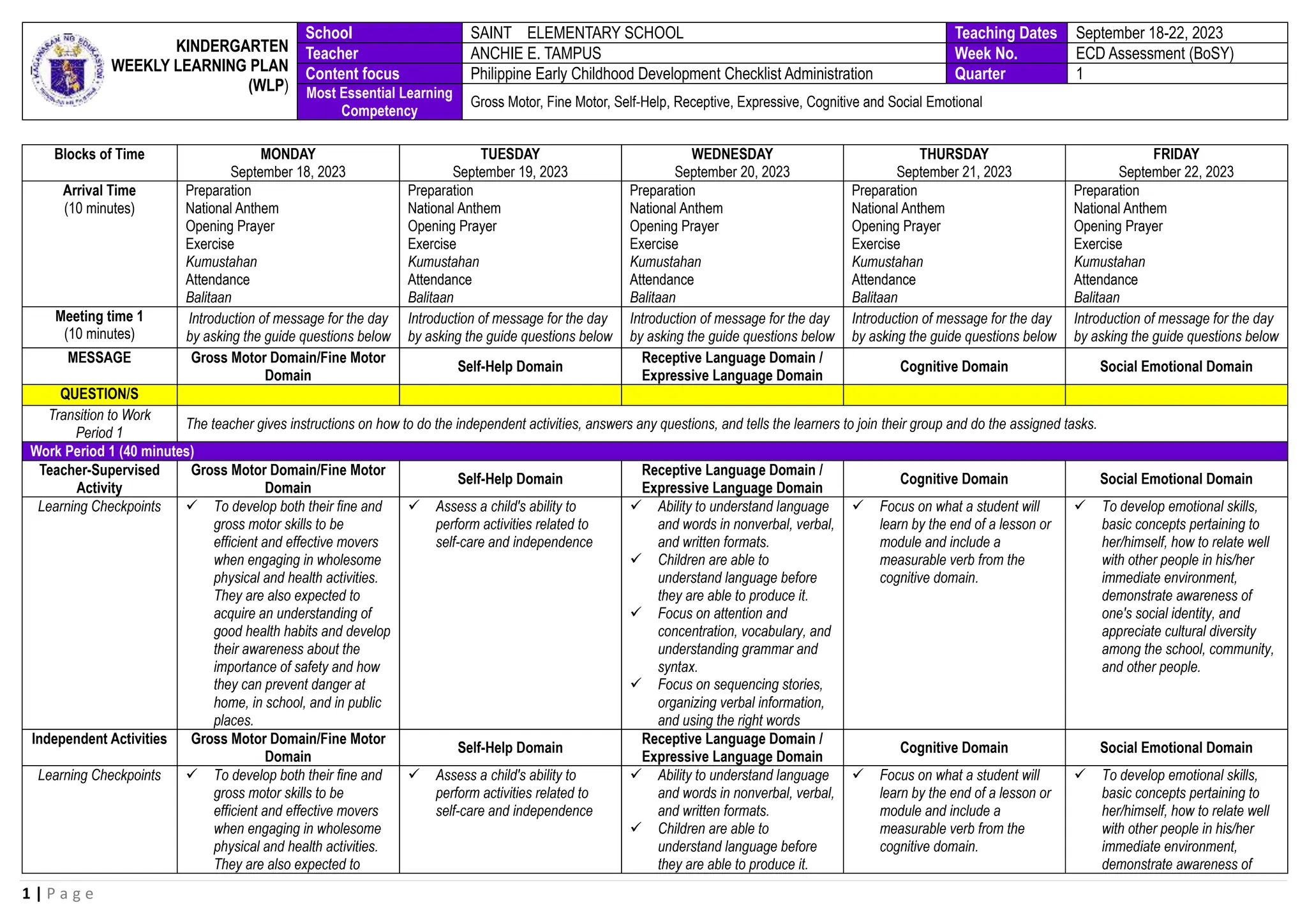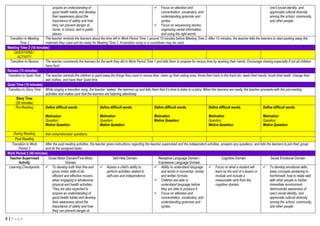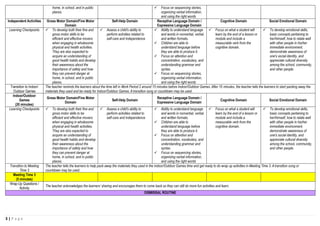The document outlines a weekly learning plan for kindergarten students at Saint Elementary School for the week of September 18-22, 2023. It details the daily schedule and activities, which focus on developing students' gross motor, fine motor, self-help, receptive language, expressive language, cognitive, and social emotional skills through various lessons, independent work, outdoor time, and story time. Key learning checkpoints are provided for each domain to guide instruction throughout the week.



